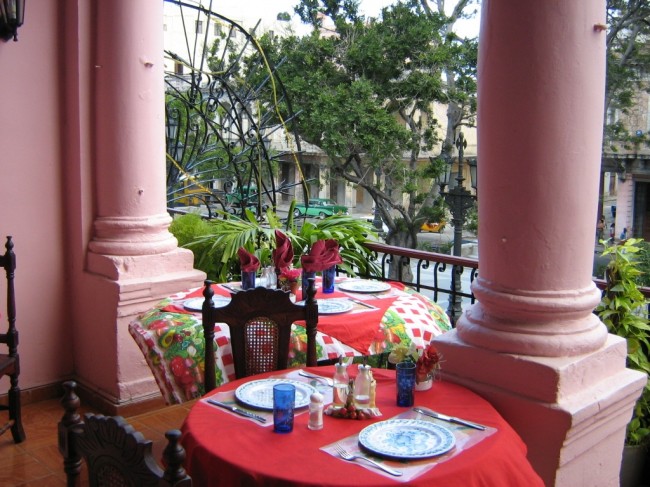Each day in Havana a new fast food joint appears, or a pirate CD stall, or a place that sells religious objects. These are three businesses that proliferate in the city during this spring-like month of February.
But they are not the only ones. Signs both rustic and well-designed advertise appliance mechanics, shoe repairers, seamstresses, photographers forquinces (traditional 15th birthday celebrations) or weddings, and paladares — private restaurants — perhaps the most lucrative among them.
These small restaurants with 20 seats or less sprout up like flowers in Havana. In neighborhoods such as Vedado and Miramar, close to embassies, five-star hotels and business offices it is not uncommon to spot more than one paladar on the same block.
Also in the poor suburbs and mostly black neighborhoods of San Leopoldo, Belén, and San Isidro, in the old and deteriorated part of the capital, private restaurants open with great fanfare.
"We started out very excited and praying for it to turn out lucrative and prosperous. For now, inspectors don't seem to be as rigorous as in past years. The oversight is more flexible. That may be a good sign," says Roberto, owner of a paladar that opened two weeks ago a stone's throw away from the Cathedral of Havana.
Enrique, owner of La Guardia, the site of scenes from the film Fresa y Chocolate which has been visited by Queen Sofía as well as American artists and politicians passing through Havana, is filled with the same optimism. He has reopened his paladarwith a new look and a menu featuring gastronomic novelties.
Prices differ depending on the neighborhood, the spot's ambiance or the chef's experience. "For apaladar to be accepted, the key element is a good head chef. If you craft quality dishes, the customer will repeat the visit," assures Leonardo, who runs apaladar in the municipality Diez de Octubre.
A quality kitchen chef earns between twenty and fifty dollars daily. Almost all of Havana's most famous paladares hire culinary masters with extensive curriculums in hotel facilities and even in other countries.
Hundreds of paladares have opened up in the past three months in Havana. And that figure promises to double by the summer – as does the competition for state restaurants.
It is already evident. Within hotel chains the number of guests has diminished. Ricardo, manager in Havana's Chinatown, where numerous Chinese, creole, and international cafés and restaurants are located, views the increase in paladares with worry.
"Now we must not only increase our quality to be able to compete with the paladares, whose smaller quantity of diners allows them to offer a personalized menu, but we also have the issue of prices. We cannot lower prices without the approval of the state, and that is a big problem," he points out.
Dinner in a first class state restaurant costs two people between forty and fifty dollars, not counting beer or wine. If the dinner is in a five-star hotel, the price shoots to up to a hundred dollars.
In a paladar, four people can eat well for twenty dollars. Amidst a monstrous crisis which tightens the pockets of tourists as well as Cubans who receive remittances, the option of private restaurants is almost a godsend.
It's still to be seen whether the government will put on a long face. Government inefficiency and its terror of people accumulating large sums of money worries the thousands of Cubans that have opted to open a small private business.
At the moment, the low profile of state inspectors is good news for independent workers. Will it stay that way? As always in Cuba, we'll just have to wait and see.
Translated by Antonella Pagani
February 9 2011







